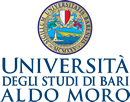«Modern civilization must not be considered simply as a continuation of ancient civilization, as its progression. This is how both writers and men generally regard it, and from that point of view, it follows, they consider the most flourishing periods of Athenian and Roman civilization as incomplete and in every respect inferior to our own. But whatever the filiation historically speaking between modern and ancient civilization, and the influence that the latter has on the former, especially at its birth and in its early development, logically speaking, these two civilizations, which are essentially different, are and must be considered as two different civilizations, or rather two different and distinct species of civilization, each actually complete in itself. From this point of view, the parallel between them becomes extremely useful and interesting». The visionary modernity of Giacomo Leopardi is extraordinary. In a thought recorded in March 1826 as a possible «preliminary to a Comparison of the ancients and the moderns» (Zibaldone, 4171-4172, here translated by K. Baldwin et al.), he noted the distance between past and present and their irreducible objective alterity, and he strictly banned the temptation to modernize through superficial identification or sterile actualization. In fact, his words legitimize the comparative vision that alone allows the rereading of the ancient evidence in the light of the questions of meaning it contains and the accurate problematizing of Greco-Latin culture in its bearing on today’s reality, in a word, on the problem of its ‘classicism’.
The various well-known ‘Humanisms’ that have come and gone in European culture of the modern era were, in fact, committed to building representations of the past that, each time, were functional for their own identity. In the end, they offered an image of the past deformed in one way or another, an image of Greco-Roman antiquity in particular, of which the fundamental, and therefore ‘classic’ role, was universally recognized. The outcome of the metaphorical use of the adjective classicus is also well known. Aulus Gellius (Noctes Atticae, XIX, 8, 15), in the second century CE, shifted it, for the first time, from the social classification of citizen-soldiers to the literary sphere, to designate, as an attribute of scriptor, those authors whose undisputed quality was guaranteed by their antiquity. This semantic extension of the word ended up legitimizing, from the fifteenth-century humanists to our day, the crystallization of canons and of exemplary models in all fields of literature, the sciences and the arts. It triggered processes of ‘classicist’ selection linked to a past characterized evaluatively and teleologically. So to that discontinuous continuum that is the ‘tradition’ of the classical world, and also therefore to the prismatic and manifold effects of its distortions, «FuturoClassico» is dedicated. It begins in the awareness that only by retracing the lights and the shadows of that tradition’s dialectic vitality can the ancient world be received in the culture of civil society as a whole, not only as a heritage jealously cultivated and protected in the restricted circles of the ‘insiders’, but also as a common good as an extraordinary historical legacy, full of potentiality for the recovery of historical identities and for the development of critical categories for interpreting present and future questions and challenges.
The section entitled "ClassicoDigitale" collects articles that explore new horizons in the field of Digital Humanities connected to Classical studies. Thanks to the digital resources applied to classical studies, some objectives are nowadays easily achieved such as creating big digital corpora, using effortlessly many resources at a time, representing the 'fluidity' of texts studied in different ages, doing lexical and semantic research in extensive archives, exploring the texts in their contexts, following the textual variants of the texts through the centuries, questioning the poetic memory of a text, comparing the decisions of a publishing house, shaping didactic interdisciplinary paths, stimulating the debate of the scientific community on the same object of study. In order to give space to this specific research field, extremely vital but still unexplored by the Italian journals, "FuturoClassico" opens a new section that integrates the objectives and the contents of the journal by intersecting the themes of tradition and survival, of fortune and reception of the classical and late-antique cultures.
It is clear that university research in the humanities, especially today, cannot forget its instrumental role in a broader cultural function and, to this end, cannot ignore its connection with the world of education: «FuturoClassico» will therefore devote constant attention to the educational implications of the notion of the ‘tradition’ of Greco-Latin culture. It will seek to put an area of undoubted pedagogical value on a more solid scholarly basis.
This journal is the emanation of the Interuniversity Research Center for Studies on the Tradition (CIRST), a center originating in 2013, in the footsteps of an existing Interdepartmental Centre, ‘Studies on Tradition’, of the University of Bari. The purpose of CIRST was to promote the cooperation of scholars in many different areas of the Humanities on the theme of the tradition and the reception of classical civilization and Late Antiquity in medieval, Renaissance-humanist, modern and contemporary times. After various initiatives of international scope, which aimed to create opportunities for dialogue and proved challenging and profitable for its various participants, CIRST, at present including the universities of Bari, the Republic of San Marino and Padova, aims with this journal to give visibility to the research paths of all students, Italians and others, who want to meet on the common ground of the tradition of the classical world. Here the specificities of their studies, far from being mechanically juxtaposed, reconnect around this common thread and find a place where they can meet, intersect, and debate.
Olimpia Imperio





